As Webster defines it ~
Patriotism: love for or devotion to one’s country
——————
And for those charged with carrying out its patriotic dictate of purpose ~
One who loves and supports his or her country
“…a motivated patriot who was fearless in the quest to preserve American security.” — W. R. Hearst, Jr.
Part 1:
LTG Michael Flynn
US Army (Retired)
Main wars/theaters of service:
Central America, Caribbean, Middle East, and Central Asia
Military Specialties:
Tactical/Strategic Intelligence
Human Intelligence, Counter-Intelligence
Electronic Warfare Strategic/Operational Plans Officer
Strategist, Master Tactician.
LTG Russel L. Honoré
US Army (Retired)
Retired as Commanding General, First Army
Military Specialties:
Commander of Joint Task Force Katrina & Global Preparedness Authority
Vice Director for Operations, J-3, Commander the Joint Staff, Washington, D.C.
Standing Joint Force Headquarters-Homeland Security, United States Northern Command
Commander S. Korea 2nd Infantry Div.
MG Paul E Vallely MG
US Army (Retired)
Main wars/theaters of service: Europe, Japan, Korea, Thailand, Syria, Iraq, Kuwait, Turkey, Israel Indonesia and Central America
Military Specialties:
Infantry company commander, intelligence officer, operations officer, military advisor and aide-de-camp
Served in Vietnam War
Retired as Deputy Commanding General, Pacific Command
Senior military advisor FOX News
Vallely currently serves as Chairman of two foundations… Stand Up America US Foundation and the Scott Vallely Soldiers Memorial Fund Foundation
Colonel Michael Ward
USAF, Army National Guard, Air Nation Guard (Retired)
Main wars/theaters of service:
Iraq War (Operation Iraqi Freedom), Operation Southern Watch
Military Specialties:
48G4 (State Air Surgeon)
8G3 (Flight Surgeon)
0270 (Medical Service Specialist
Colonel Rob Maness
USAF SSgt and Colonel (Retired)
Main wars/theaters of service: Operation Just Cause (Panama) Desert Shield/Storm, OEF/OIF, GWOT
Military Specialties:
46470 (EOD Tech)
C12B3B (Squadron Commander,
Evaluator Weapons System
Officer, B-1 Bombers)
91WO Wing Commander
Commander Cliff Alligood
US Navy (Retired)
Enlisted: SKCM (SS)
Main wars/theaters of service: Desert Shield, Desert Storm – Southwest Asia
Military Specialties:
Master Chief Submarines
2818 – SUADPS (Shipboard Uniform Automated Data Processing System) Supervisor
Officer Designators: 6512 – Supply Corps LDO (Limited Duty Officer)
6510 – Supply Corps LDO
3100 – Supply Corps Officer
CW3 David Harmes
US Army (Retired)
Enlisted: Master SGT
Officer CPT (03)
Chief Warrant Officer CW3
Main wars/theaters of service:
Iraq (OEF II), Afghanistan
Military Specialties:
Enlisted:
Management Field (CMF) 63, Ground Vehicle Maintenance
(CMF) 76, Field Artillery CMF 13, 11B Infantry
OS Q instructor teaching 88M
Truck Driver, 13E Fire Direction Center (FDC).
Officer, CPT:
Infantry and Field Artillery
Warrant Officer:
915E Automotive Maintenance
CMSgt Michael P Wenzel
USAF (Retired)
24 yrs. CMSgt,
18 yrs. GS-15 (Retired)
Main wars/theaters of service: Desert Shield/Storm, Europe and Cold War, Strategic Air Command Northern Tier
Military Specialties:
USAF numerous
Civil Serv GS-1601-15
Aircraft Maintenance Superintendent for B-52,A-10, KC-135
Depot Aircraft Maintenance Overhaul, and Regional Avionics Maintenance.
No one is more laden with the mantle of providing security for this country than the soldier on the front line of duty, protecting us and placing his patriotism on display before the world. No one more tasked with committing himself to the selfless acts needed to defend and protect our constitution, our country, our lifestyle and freedoms.
From the clatter and chatter of combat; fighting national disasters; medical surgeries to rescuing Gemini spacecraft, these patriots have served our country around the globe for decades.
Whether you choose to celebrate with public parades or personal prayer, this Veterans Day finds us again remembering and honoring those who served, who protected, and kept our country safe. While originally called Armistice Day, commemorating the end of World War I, and largely considered the end of “the war to end all wars,” we’re reminded the battle goes on and so does our need for faithful defenders of our freedoms.
Memorial Day is celebrated as a time to remember and honor those who made the ultimate sacrifice for our country; Veterans Day honors all who have served and meant to thank those living veterans for the sacrifices.
This article attempts to honor those included here as representatives of all who served, all who committed their lives and actions to the service to our country. In talking with these patriots, their love of country is validated; their professional dedication to duty, ability to lead and to win the battle and the war is confirmed; all while showing personal concern for their troops, the mission, and the country.
This is not a political piece, shining the light of liberalism or conservatism on serving this country. I don’t know the political leanings of each as it’s not important. They’re to be recognized and applauded for their selfless service.
They each have a story to tell. Some have expanded on the basic questions with their own personal experiences. Their answers are their own and varied – which makes our overview so interesting. We’ll touch on “Don’t Ask – Don’t Tell,” women in the military, volunteer vs. the draft and more.
I trust you’ll enjoy this in-depth glimpse into some very interesting and dedicated military professionals.
This is Part 1 of my series where we reveal insight into why they joined, made it a career, and opinions on serving in occasional politically charged environments. Part 2 and 3 can be FOUND HERE:
RB ~ Napoleon once said, “A soldier will fight long and hard for a bit of colored ribbon.” What motivated you to join the service in the first place?
FLYNN ~ “My father, my grandfathers (plural), and other family members have all served in the military starting with WWI. After having immigrated over from Ireland, my family’s history of military service to the United States is significant and drove me to want to serve as well…a decision I would readily make again. I absolutely loved serving in our military…simply the best people in the world!”
HONORĖ ~ “Well, I joined the service out of obligation. When I was in college it was mandatory to be in ROTC or be drafted [laughter]. So, I wanted to come in to the service as a lieutenant. Going through ROTC gave me the opportunity to get a commission, but it was either that or go down to the draft board for when your number is called up, and I wanted to get my education so that gave me the opportunity to start serving as a commissioned officer from the ROTC program. But it was strictly a four-year obligation. And after the fourth year, I never looked back as far as… It became a way of life, in service to the country. And the teamwork, the military teamwork, the constant routine to try and make yourself better at doing your job as an infantryman, was intriguing to me. To increase your endurance, to be able to deal with all types of weather, for the potentiality if you ever had to charge up a hill or take a beach, as they did so many times of World War Two. So, it started off as an obligation and it became a way of life. And I think I’m a better person as a result of 37 years doing that.“
VALLELY ~ “Wanted to be an Aerospace Engineer and was enrolled at Penn State Univ and then received an appointment to West Point. My motivation, then, was to serve as Infantry and Special Ops Officer.”
WARD ~ “I came from a patriotic family and actually sought out an AF ROTC scholarship in college, but when I did not get selected (due to my lack of enthusiasm for high grades in High School), I decided to enlist, hoping for something in the Intelligence fields. I ended up in the Delayed Entry Program and was encouraged my recruiter to enter Basic Training with 20 semester college credits and I would be an E-2 at the completion of basic, not an E-1. I took and EMT course and while in Basic Training was selected to become a medic a medic.”
MANESS ~” I wanted to do something for my country and be part of something bigger than myself. I also was the third son out of four of a retired Air Force MSgt. We had no dollar for college and I wanted to fly supersonic jets, so I had to get to college.”
ALLIGOOD ~ “One word was the motivator – the DRAFT! I first joined the Naval Reserve Surface Division. I had friends who were serving in submarines and wanted a submarine assignment. I was told that as a reservist I was not eligible for submarine duty with a two-year active duty commitment. I reenlisted USN for 4 years. I was told that facilities were not available to process me for submarine service and could put in for submarines after at year at my duty station. I received orders in about two weeks to USS WASP (CVS-18) an “anti-submarine” Aircraft Carrier homeported in Boston MA. I did not get submarines but got something close – a ship that destroys them!
The most historic memories of WASP was when designated the GEMINI recovery flagship and I was there to recover GEMINI IV, VI, VII and IX. GEMINI IV.”
HARMES ~ “I was told I needed another year of high school before I could go to college. I was graduating in a couple of weeks. I signed up for tech school in Auto Body instead. A guy from my high school convinced me to come over to the National Guard Armory (the commander (a MAJ who made BG) happen to be my dad’s cousin, he played that angle also). Joined, because I could be in the army, and go to school at the same time (after Basic and AIT), besides I did not feel like I had any direction at the time.”
WENZEL ~ “As much as I would have liked to have said I was the most patriotic individual in my town, I wasn’t. I had just gotten married and had a baby on the way. Actually, it was the Vietnam war’s draft. I had a draft number of 208 so I figured better sign up or end up in the Army. I joined the US Air Force and the rest is history. Funny fact was the draft only went up to 195.”
RB ~ What motivated you to stay in the service and make it a career?
FLYNN ~”I loved the people, especially the Soldiers and Non-Commissioned Officers I served alongside. They represent the salt of the earth and are why our Country is so strong. They are the rocks upon which our nation’s foundation is built upon.“
HONORĖ ~ “I chose the Army because we had Army ROTC! Actually, it’s probably more my wheelhouse. Most of my relatives who were in the service went into the Army. And it just made a lot of sense to me. And then I chose the infantry, and the infantry chose me. And again, it became a way of life.“
VALLELY ~ “Service to country, education and a stable life for my family“.
WARD ~ “I initially just wanted to get out. I applied for an early discharge with a commitment to the Reserves and was selected, so 2 ½ year after entering basic, I went into the reserves and started college on my path to become a physician. I have enjoyed to comradery and opportunity to serve my state and nation. Very few get the opportunity to put on our nations uniform and serve our fellow Americans. I loved it, both my time enlisted and as an officer. I got far more than I gave and I never considered getting out once I completed my medical training.”
MANESS ~ “Success and the love of what I was doing at a time when our country was faced with the Soviet Union, Iran hostages, etc. Later on the challenges we faced from 911 and on.”
ALLIGOOD ~ “When my enlistment was approaching the end in 1968 I was stationed at Naval Communications Station Harold E. Holt Australia. I got married on leave in route to Australia. I was promoted to SK1 (E-6). My enlistment was up in June and I was a newly minted 1st Class Petty Officer with a wife, a pregnant wife, and in Australia. The Navy seemed like a good job to continue and I reenlisted.“
HARMES ~ “Before I even went to Basic, I was seeing all of these guys coming back (some trying to get back in, but health stopped them), to get the 20 years for retirement. Many of them WWII vets. I thought “if the retirement is that good / important, I am going to do a minimum of 20 years.” 1 of these guys, (Robert Teeples) was the hometown hero (the real deal). Joined the National Guard 1 October 1940 (the National Guard was mobilized for WWII 15 October). He was a charter member of the Alamo Scouts, battle field commission, fighting the entire war.“
WENZEL ~ “I actually loved my job and was offered a re-enlistment bonus I couldn’t refuse for the next 8 years. My wife and I actually liked the military family’s togetherness.”
RB ~ What made you choose the branch of service you did?
FLYNN ~ “Originally, I thought I would join the USMC (and for a period of time, I did, going right up to the point of enlisting). But given that my father was Army (WWII and Korean War VET), I always felt I would join the Army. I got lucky, an Army Major and ROTC Officer who I played intramural basketball with at the University of Rhode Island offered me an Army ROTC Scholarship, one that had been turned back in from the ROTC Region. When the Major offered it, I accepted, and the rest is history. There’s a lot more to that story, but suffice to say, I got lucky and I’m glad that ROTC Major saw something in me.”
HONORĖ ~ “As a career soldier, we spent a lot of time in professional development, going to schools, understanding the laws, regulations and appropriate meanings of certain statutes of the Constitution. And we are sworn in, approved by the President on our commission. And it’s a clear, undisputed fact that we are subordinate to the civilian leadership. And every four years, leadership changes. And over time, they can do things that could really make things hard for us by not giving us all the resources we need. And I saw many lean years where we had resource constraints. We couldn’t complete all of our training we wanted to do, the way we want to do it. And all that was the result of civilian leadership, telling us how much money we were going to get as opposed to asking how much we need to train with. And on the other hand, there are good times and there are bad times. I grew up on a farm and some years the crops are good, some years the crops are bad. You take the good with the bad. But there’s a great respect for that authority, that political authority, and that it’s going to change. The good news is, they all say they love us – but that comes at a price. And they’ll remind you every now and then that what we put into our defense, you know, is seven times our nearest competitor. And that’s something else we’re not doing… So, you go with that and you survive those lean budget years and make up for it when you’re back in cycle. And again, that’s the good news about the politicians changing, is that you get a different view every four years or every eight years, the way it is now. But the good news is, you know, that the American people support you and when we start to squeak, they American people listen and they will go with somebody that’s going to promise us the resources that we need. You know, along those lines, we’ve got 17 years now in Afghanistan and still there. That’s a long war. And I don’t see an end to it, but again, that’s the job of the politicians to figure out how they’re going to resolve that war. And I don’t think they’ve been doing as much as they should have done to seek a political solution. I’m not quite sure a military solution exists, because going all the way back to Alexander the Great, everybody’s tried – to include the Russians, multiple times – I’m not sure there’s a military solution there. But again, we bow to the directions we get from the political class.”
VALLELY ~ “Saw many more opportunities for a career and promotion opportunities in the Infantry and Army.”
WARD ~ “Oh come on, the Air Force is the best, I never considered any other branch, I had a girlfriend in High School whose dad was a retired Marine Aviator, a Vietnam Vet, tough and mean, I wanted a different path.”
MANESS ~ “My Dad put me in the cockpit f an SR-71 when I was five years old, he worked in the Blackbird and U-2 programs early, when they were still highly classified, so he got to show his family the aircraft occasionally.”
ALLIGOOD ~ “My father was a Boatswains Mate in the Navy during WW II, I had been a Sea Cadet for a couple of years and enlisting in the Naval Reserve was a good option for me. The Navy it was.”
HARMES ~ “It was the hometown unit, and part of the Army National Guard. (If it would have been another branch, under the same circumstance, I probably would have joined anyway.)”
WENZEL ~ “I lived next to a Navy base and knew a few sailors, the problem was they were always at sea and my wife suggested the USAF. Sounded good to me.”
RB ~ When you served, did politics from the top become a part of decision making or influencing or was it easy to function strictly in a military mindset?
FLYNN ~ “Anyone who says politics doesn’t play into decision making in the military is being unrealistic. As Carl Von Clausewitz would say, War is an extension of Politics—that was a very true statement when he wrote it well over a hundred years ago and it remains true today. However, at different levels, politics, as part of decision-making, plays vastly different roles. When you’re a young officer, you focus on the troopers under your care, politics is (and should be) irrelevant. You’re executing your orders and you’re accomplishing your mission…as you become more senior, especially at the flag officer level, politics influencing decision making comes more into play and you certainly understand it better, but that doesn’t mean you like all the decisions made. However, as military officers, we work for our civilian bosses and we swear an oath to our inspired Constitution (which is why we are such a great military). All that being said, because of our political system (not in spite of it), to include politics being part of the decision-making process, AND the great leaders we have leading our Armed Forces, we have a very professional, very capable and very effective all volunteer force.”
HONORĖ ~ “I think all the services, starting with the [Joint Chiefs] Chairman, with the Secretary of Defense, have more focus on the combat lethality to deal with the conventional threat. Over the years, in Afghanistan and Iraq, going from the conventional invasion to a counter-terrorism fight, one where you’re not fighting conventional forces but you’re fighting irregulars… We used to have a significant advantage with our computer networking, with our drones, with our satellites. And some of that advantage slipped away because you can learn how to do it on the computer, and you’ve got to assume somebody can break into it.”
VALLELY ~ “Not really, I was not political in the Army or served with Commanders that were.”
WARD ~ “I began serving under Reagan and extended my commitment until after Obama was gone. It was great to get the retirement letter from President Trump. Service under Clinton and Obama was horrible. Their politics and priority for funding the military harmed moral. Although I am not a big fan of G W Bush, his love of the military and its people was inspiring, and inspired me to voluntarily deploy to Iraq.”
MANESS ~ “Not at first, but toward the end it was impossible to get away from it. Obama was President, Don’t Ask Don’t Tell Repeal, etc.”
ALLIGOOD ~ “I only saw any political considerations, influencers when I achieved senior ranks and command.”
HARMES ~ “When I was young and enlisted, politics did not make a difference what I did. Later as an officer, even without giving a political party, or preference, I could see, if your new commander was a D, It seemed to quickly become a problem for anyone that was not. I did not notice it the other way or maybe, it was because, I was in the same mind set, and that it was not a problem.”
WENZEL ~ “I didn’t always agree with my leadership but knew the importance of following orders and supporting the chain of command.”
RB ~ If you were in a command position now, would it be easier or harder to lead than when you were active? (given political, social and other factors)
FLYNN ~ “I would serve again and would go back in today if needed.”
HONORĖ ~ “You know, the sound of freedom is loud and it’ll shake your windows. And whether it’s at Fort Hood, Texas, the middle of Germany or South Korea where we are forward-deployed and we are in a readiness posture and we’re training, or if we’re conducting an operation in Afghanistan and Iraq to protect people, the tools we use are loud, dangerous, lethal. And whatever we do, whether we’re training or we’re in operations, it disrupts the hell out of people’s lives.
But again, the sound of freedom is loud and it rattles. Because you’ve got to train and we’ve got to protect the people we are forward-deployed to protect. And those where we are strictly just training, whether it’s in the United States or in Europe or South Korea or Japan, wherever, we can be a nuisance to a community. Again, as I said, that’s the sound of freedom. And for people that hadn’t seen a war or rounds fired in 60 to 70 years, [they] say, why do we still have these troops here, taking up our highways and bombing stuff where we can hear it and disrupting their solitude at their home. But again, we’re loud and we will shake and rattle and roll. And whether it’s from our fighter jets or our bombs that we’re dropping, we can be and are sensitive to that. And we even adjust the times we’re training and give great notice, but still we are a nuisance to many people in their homes. But again, that’s the sound of freedom. There’s no way to do this quietly and practice our craft. So, we respect that.”
VALLELY ~ “Much more difficult now because of political correctness and social engineering. Lack of the Warrior Ethos.”
WARD ~ “I believe it would be much easier now, under Trump than the social engineering that was occurring under Obama.”
MANESS ~ “Harder. I would have resigned eventually had I stayed in. I was in 3 command positions, including my final assignment as the senior commander in a Wing. Retired in 2011.”
ALLIGOOD ~ “I had command of the Atlantic Fleet Integrated Logistics Overhaul Program as Lieutenant Commander. LANTFLTILO, headquartered in Portsmouth VA, preformed logistics overhauls at 6 east coast sites for ships of the Atlantic Fleet and was subordinate command of Surface Forces Atlantic Fleet. The Program was staffed by 100 civilian and senior enlisted personnel and 300-500 personnel from ships undergoing ILOs on a temporary basis.
I believe it would be harder to lead now that when I was on active duty. It seems many more “social” considerations and practice today than 30 years ago.”
HARMES ~ “From being in command, every time they come up with another social experiment, it made command and leading more difficult. Too often, these changes made discipline impossible, because they would say you were prejudice against them. For example, when I was in IOBC (Infantry Officer Basic Course), I was accused of being prejudice against the Arabs, because I was on them, (not because they were Arabs) because they were late, and just not meeting the standard. What no one else saw, was that I have foreign students, several nationalities, and religions, coming to my room at night (they were not all even in my same IOBC class). I was explaining what they did not understand about some class, what books they needed for the next day, or anything else they did not understand about what was going on. Each and every one, was suppose to have a student (sponsor) from there platoon helping them. I was no one’s sponsor.”
WENZEL ~ “Easier in some ways and harder in others. I have so much more experience now. Many decisions would be much easier to make. On the other hand, the armed forces have become so much more PC that it makes it so much harder to work around liberal mindsets.”
RB ~ At times when you were in charge, were you able to make “military” decisions, or did you ever feel the need to be more “socially aware,” “inclusive,” “accepting or understanding” in making the final determination of a personnel or operational situation?
FLYNN ~ “I always felt I could make the decisions I believed needed to be made (and always felt free to let my superiors know how I felt). My primary considerations for the decisions I was involved in or made were always for the betterment of the people I served alongside, to accomplish the mission I was given, and for the good of my organization, unit and our Country. That said, the acceptance of those decisions come with consequences. If you worry about being politically correct when making decisions to satisfy some political narrative, lives will be lost and units will be ruined.”
VALLELY ~ “We were taught and trained to lead troops in combat and win battles and war. Being a good leader for all cultures and ethnic backgrounds.”
WARD ~ “Military decisions were always over shadowed by social awareness, some of that is good – being a good leader and some bad.”
MANESS ~ “I always made military decisions. I was very aware of the desire for some to get politically correct decisions but they were disappointed.”
ALLIGOOD ~ “I was able to make military decisions during my service.”
HARMES ~ “I did not think in a “Socially Aware” way (some may even say I did not think). I just did what I thought was right, be dammed the consequences. Everyone was held to the same standard. I just saw soldiers, not color. I may have attained more rank, if I would have played the PC game.”
WENZEL ~ “On deployments there wasn’t always time to be inclusive yet all factors had to be accounted for. Some decisions had to be made in a short time based on the ops tempo of the war. Aircraft flying safety and lives depended on good decisions. One time I signed an ER (exceptional release) for an A-10 and it never returned to base. My entire career was on the line if I had missed an inspection item and it contributed to the crash. Decisions couldn’t be taken or made lightly.”
RB ~ During or after active service, over time, did you see an overly aggressive acceptance of our enemy or an Islamification of our forces?
FLYNN ~ “I did.”
WARD ~ “I cannot say that I saw an Islamification of our forces but rather a greater willingness to make concessions around the need for Chaplains and translators.”
ALLIGOOD ~ I retired on September 1, 1994 at a time when the ”Jihad” was virtually unknown in the service and a Muslim was a strange creature in my units if any existed. That said, I have had personal experience in the Islamic world, assigned to the US Military Training Mission to Saudi Arabia and was headquartered at Dammam on the Arabian Gulf. My counterpart in the Royal Saudi Naval Force (RSNF) was a LTJG and we developed a good relationship. The Saudis were allies and friendly during my time in “The Kingdom” and positive towards the US. I saw no signs of Islamic Radicalism during my tour. On a personal note, I was told my old LTJG counterpart was now a navy Captain and the number 2 of RSNF Logistics.
Part 2 of our series will deal with the military’s questions of race, DADT (Don’t Ask – Don’t Tell), Women in the military and more.
You can get a more personal insight from their writings. Click the images below for access to their bestsellers.
You can follow Col Rob Maness on CRTV
MG Paul Vallely can be found at Stand Up America US Foundation and the Scott Vallely Soldiers Memorial Fund Foundation
RB ~
For updates on articles follow @Video Ron
© 2018 Group AMC, Inc.
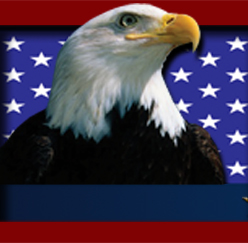


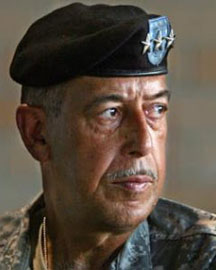

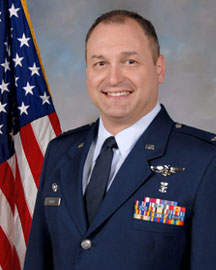
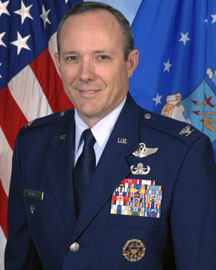
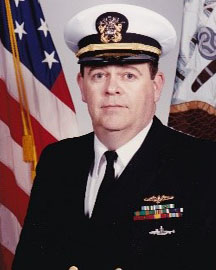
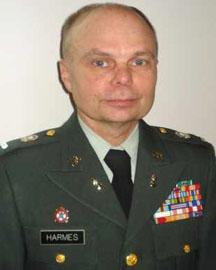




Recent Comments